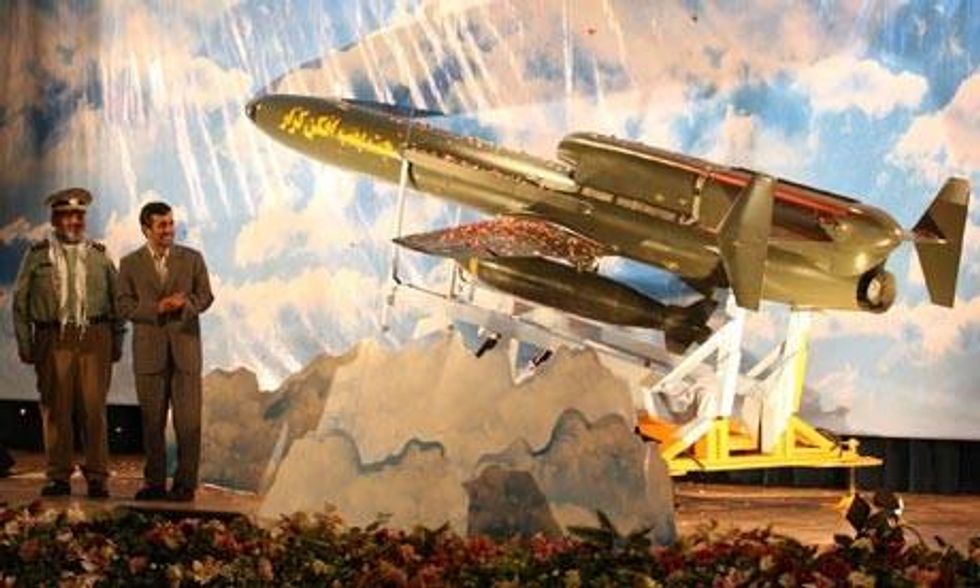This time there will be no excuses. Plans for British support for an American assault on Iran, revealed in today's Guardian, are appalling. They would risk what even the "wars of 9/11" did not bring: a Christian-Muslim armageddon engulfing the region. This time no one should say they were not warned, that minds were elsewhere, that we were told it would be swift and surgical. Nobody should say that.
To western strategists, Iran today is exactly where Iraq was in 2002. The country posed no threat to the west. Yet "weapons of mass destruction" were said to be primed and had to be urgently eliminated. The offending regime could be subjugated by air power or, if not, by regime change. The cause was noble, and the outcome sure.
There any comparison ends. Iran is not a one-man, two-bit dictatorship, but a nation of 70 million people, an ancient and proud civilisation with a developed civil society and a modicum of pluralist democracy. Certainly its insecure leader, Mahmoud Ahmadinejad, wants a weapons-ready nuclear enrichment programme, as next week's United Nations report by the International Atomic Energy Authority is expected to repeat. But he leads a country which, like Pakistan, Britain or Israel, craves status, prestige and the vague security that these unusable weapons seem to convey.
Nuclear dissemination is deplorable, but massively overhyped. Warheads cost a fortune to develop and keep in service. Modern anti-western aggression finds it cheaper and more effective to plan terrorist outrages. Nuclear bombs have not made Israel more secure. They have been useless to Pakistan in confronting India, and to North Korea against the south. They did not save apartheid in South Africa, or the Soviet Union from itself.
The planned attack on Iran is familiar in form. It is declared exclusively aerial, with missiles and unmanned drones deployed against nuclear and military targets. The airmen will promise, as they did in Belgrade, Baghdad and Benghazi, that bombing can do the job unaided. The enemy then digs in and fights back, the tempo of attack has to mount, and ground forces are sucked in.
We read that there are, as yet, no plans for a ground attack on Iran, though "a small number of special forces" may be required, as was required eventually in Iraq, Libya and Afghanistan. The mission will creep from wrecking Iran's nuclear capability to ensuring it cannot be rebuilt, and then to securing regime change and "freedom". We have been there so often before. The logic of war tends towards totality, without which no victory can be declared.
Total war on Iran would be a catastrophe. Every politician involved in this business should be locked in a room and forced to read the cuttings on Afghanistan and Iraq over the past decade. Ahmadinejad may delight audiences with his bloodthirsty language about the west. But the rest of the world would ask by what right are two nuclear powers using violence to stop someone else joining their weirdly exclusive club. We would have no UN support for such a venture. No one seriously supposes that Iran, under whatever ruler, would seek to wipe out Israel - and anyway that is Israel's business.
Stopping Iran from developing a nuclear capability is and always was a lost cause. It appears to be three years from deliverable warheads and is besieged by foreign agents launching cyber-attacks, selling fake components and assassinating scientists. But Iran would be no easy target, like Libya or Iraq. The more isolated and threatened Iran is by the west, the more nuclear assertiveness attracts its leadership, and the more allies would rally to its cause.
Every expert report on Iran warns that bombing is the one thing likely to bond the unpopular Ahmadinejad to his people. The idea that they would rise up against him after the Pentagon's reported "shock and awe" three-day blitz of 1,200 targets is demented. Ahmadinejad's recent antics in New York were designed to provoke just such belligerence, to bolster his position and that of the hardliners. For rightwingers to play the enemy's game in this way used to be called treason. American presidential candidates now call it patriotism.
The wars of choice that followed 9/11 have acquired a rhythm of their own. They have yielded 10 years of rolling thunder across the Muslim world, variously proclaiming retaliation, humanity, regime change and democracy. There have been pluses - the toppling of Saddam Hussein, Gaddafi and (temporarily) the Taliban. But the minuses have been tens of thousands killed, millions displaced, societies upheaved, billions of dollars of destruction, and a region destabilised. The wars have been a gigantic, historic tragedy. They have not advanced western security one jot.
If ever there were a country that was once ripe for soft-power diplomacy, it was modern Iran. Yet the west misread Ahmadinejad and then misread such dissenters as Mohammad Khatami and parliament's speaker, Mehdi Karroubi. It defied pleas from moderates not to impose sanctions, rejecting the argument that Iran needed a strengthened professional, commercial and academic class as counterweight to the military and the mullahs. As with the sanctions imposed on Saddam's Iraq, Gaddafi's Libya and Mugabe's Zimbabwe, they have driven Iran's rulers into a siege economy. Sanctions weaken the forces of pluralism and opposition. They are plainly counterproductive.
Revolutionary Iran should have been flooded with aid, trade and cultural attention. That is what happened in Pakistan and Indonesia. Neither is a model state, but they have a developed middle class and are not regarded as regional menaces. The US is not declaring war on Pakistan, though it and its nuclear weapons pose a far greater threat to America's interests in the region than Iran.
Western bombs cannot conquer Tehran. America and Britain might be able to invade in sufficient strength to knock out nuclear bunkers, but they could not stop rebuilding, especially after a war that would radicalise the nation and make it far more antagonistic. The outcome might make Israel feel temporarily a little safer, but it would render both Israel and the west more vulnerable to terrorist and other retaliation.
A virus seems to be running through the upper echelons of Washington and London, that of a moral duty to wage war against perceived evil wherever it offers a bombing target. Anyone watching last month's Republican primary debate in Las Vegas will have been shocked at the belligerence shown by the six candidates towards the outside world. It was a display of what the historian Robert D Kaplan called "the warrior politics ... of an imperial reality that dominates our foreign policy", a fidgety search for reasons to go brawling round the globe, at any cost in resulting anarchy. The spectacle was frightening and depressing.
British friends of America can see all the signs of another country in the throes of "losing an empire and not finding a role", of a paranoid nervous breakdown. Britain has been there before. It should never go back. It has been warned.


